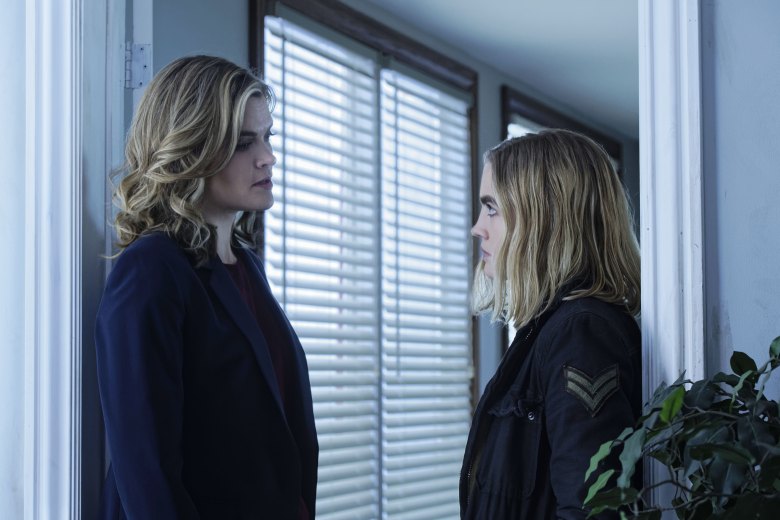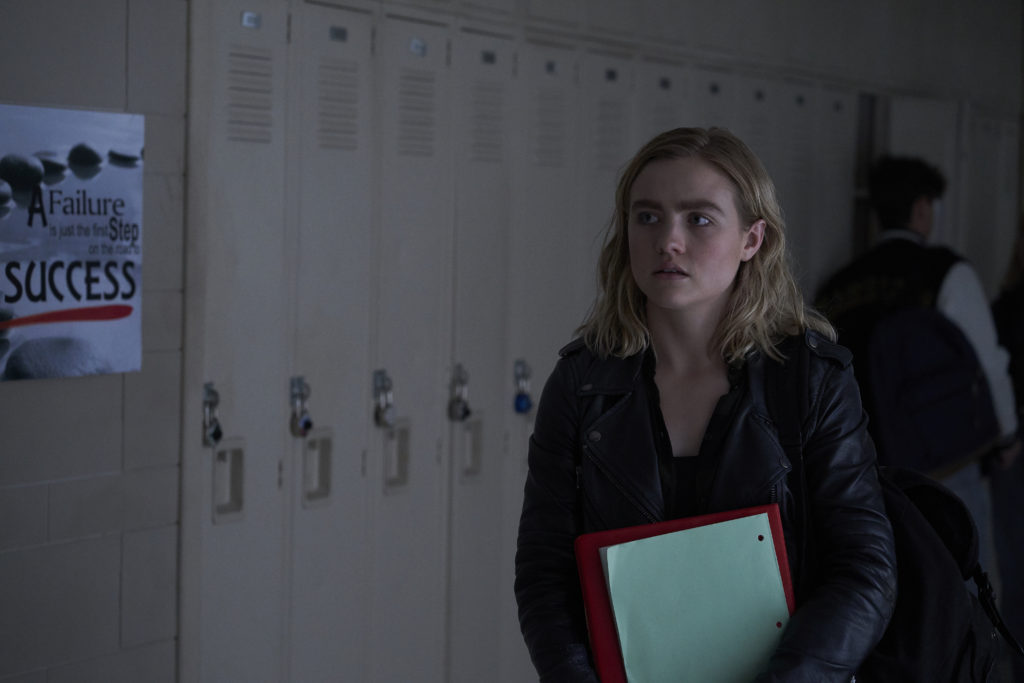Countless films and television series have depicted girls and women being sexually assaulted — with varying degrees of success. Sometimes the incident isn’t even acknowledged by the show or film as an assault, such as Jaime’s rape of Cersei in Season 4 of “Game of Thrones.” Other times, sexual assault is used as a lazy plot device. All too often, its impact is left unexplored. Or worse, the crime is examined only in relation to its effects on the survivor’s male loved one — effectively putting a woman through trauma as a way to motivate a man into action. For example, on “Peaky Blinders'” first season, a woman is nearly raped just so the protagonist can save her and slowly begin to realize he’s in love with her. No one seems to care how she feels about being assaulted, and the attack is never mentioned again.
Nuanced portrayals of sexual assault against women, and its traumatic aftermath, are few are far between. For all the praise “Outlander” has received regarding its depiction of sexual violence against the male hero, Jamie, by another male character, its portrayal of Claire’s trauma has been nonexistent. She has been sexually assaulted countless times, but the show never really engages with this, and instead she is a shoulder to cry on for other rape victims. While Jamie is given an entire years-long arc dedicated to the PTSD he suffers after being raped, “Outlander” doesn’t grant Claire more than a few minutes of screen time to cope with the many abuses or threats of abuse she encounters. She goes through shock after an assault in Season 1 — it lasts for a scene or two. That’s the extent to which the show handles Claire’s trauma.
The first episode of YouTube Premium’s “Impulse” sees its 16-year-old protagonist being sexually assaulted. Henrietta “Henry” Coles (Maddie Hasson) is new in town and flirting with the school’s star quarterback, Clay (Tanner Stine), in his truck in a secluded area. What seems like the beginning of a teen romance transforms into a horror story in seconds: Clay tries to rape Henry.
The attack is only prevented thanks to Henry’s superhuman abilities. She’s no physical match for Clay, but her superpowers get triggered as an act of self-preservation. Henry is teleported to safety, which has the side effect of the truck crushing Clay, permanently paralyzing him.
Throughout most of the season, Clay has no memory of the incident. Henry is forced to show concern for his injury, while others assume they had a consensual relationship. As if this emotional strain is not bad enough, Henry is also dealing with guilt and confusion about her abilities, and severe post traumatic stress from the attack she suffered.
It is a conscious choice on the show’s part to permanently link Henry’s teleportation to her assault. She can’t face one without also coping with the other. The connection between the attack and Henry’s powers also makes it impossible for “Impulse” to ever gloss over the lingering trauma of sexual assault, or set the rape subplot aside in favor of the show’s other sci-fi storylines.
Because of rape culture, her abilities, and Clay’s injury, Henry does not feel like she can go to the police. She did not mean to hurt anyone, yet she has to protect herself and her supernatural secret. Knowing that Clay is paralyzed and can never rape another girl also makes not reporting the assault easier.

“Impulse”
Eventually, Henry does start disclosing what happened to her. Her stepsister and friend are supportive and believe her, as does her mother, Cleo (Missi Pyle). When Henry finally opens up about her ordeal to Cleo, she tries to minimize the experience.
Since Clay wasn’t able to rape her, she tells her mom, “a lot of people have it worse.” Cleo immediately comforts her daughter, telling her, “Don’t do that. Don’t lessen what happened to you, or how much it hurts. It won’t take it away.” That’s something Henry desperately needs to hear.
“Impulse” is loosely based on the “Jumper” novels by Steven Gould, which feature a male protagonist. In an interview with Gold Derby, showrunner Lauren LeFranc explained why the series focuses on a woman character instead. “It’s about creating a character, that you don’t just have something terrible happen to her, like a sexual assault, and move quickly over that, you have to deal with it. So our whole Season 1 is dealing largely with that and her processing of it.”
Dealing with the assault over the entire season was about “making sure we don’t fall into those traps and tropes that you’ve seen time and again, where you’ve seen a young woman is assaulted and it’s to elevate a male character’s storyline, or she just is fine and she moves on, and you just don’t deal with it or dramatize it,” LeFranc continued. The way rape is portrayed in “Impulse” is a considered decision to do better by female characters — and real life victims — in its depiction of sexual trauma.
Including sexual assault — not gratuitously, but centering its impact on the survivor — is innovative in light of how thoughtlessly it has been depicted in the past. Rape should not be a plot device. “Impulse’s” nuanced portrayal of an assault and its aftermath is a step in the right direction.
Netflix’s “Unbelievable” limited series also displays a sensitive, thoughtful depiction of rape. Not only does the show present victims of different ages and races, it also argues that there is no “right” way to be a victim, and the women react to their trauma in different ways. The drama follows compassionate female detectives (Toni Collette and Merritt Wever), suggesting their empathetic methods are crucial in helping survivors recover. Unsurprisingly, just like “Impulse,” “Unbelievable” is a show driven by a woman creative: “Erin Brockovich” writer Susannah Grant served as showrunner.
In TV and in film, especially in stories like the aforementioned “Game of Thrones” and “Outlander,” there are so many half-baked rape storylines — involving both faceless extras and main characters — that audiences become inured to them. However, series like “Impulse” and “Unbelievable” can help bring awareness to how these crimes affect survivors, and stress how important it is for authorities and loved ones to listen and empathize. These representations may even help survivors process their own trauma, and at the very least, doesn’t insult viewers — some of whom might be survivors themselves — with callous depictions of rape that serve only to shock the audience or inform another (male) character’s arc.







